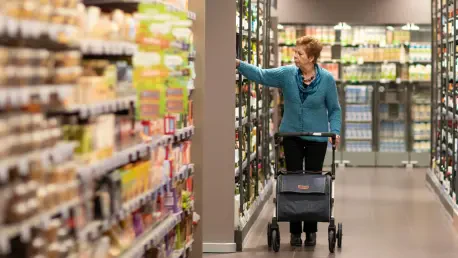The integration of artificial intelligence into Dutch grocery shopping evokes significant changes, creating ripple effects throughout the industry. A prime example of this evolution is Steijn, an AI assistant designed to revolutionize meal planning and enhance consumer experiences at Albert Heijn, the leading grocery chain in the Netherlands. By leveraging demand forecasting technologies, Steijn makes up to one billion predictions daily to streamline inventory and reduce waste. This transformation suggests a broader trend of technological advancements reaching everyday activities, encouraging healthier and more efficient consumption patterns.
Overview of the Grocery Industry in the Netherlands
The grocery industry in the Netherlands is robust, marked by significant technological advancements and evolving consumer behavior. The sector is characterized by major players, including Albert Heijn, Jumbo, and Lidl, who dominate a market focused heavily on fresh produce and local sourcing. The industry’s significance extends beyond economic metrics as it responds to consumer demands for sustainability, efficiency, and healthfulness. Key segments of the industry continue to evolve, driven by innovative technologies that alter how consumers interact with products and services. Regulations guiding the sector are designed to encourage food safety while fostering innovation put forward by emerging technological players like AI.
Current Trends and Market Analysis
Emerging Technological Influences
A sweeping influx of digital technologies, notably AI, reshapes the grocery landscape in the Netherlands. As technologies evolve, they profoundly influence consumer behavior, facilitating personalized shopping experiences. Consumers increasingly demand convenience and efficiency, leading retailers to adopt tools like AI to optimize logistics and enhance user engagement. Opportunities abound in creating niche markets for personalized nutrition, which AI can usher in by offering tailored dietary suggestions coupled with seamless shopping experiences.
Market Data and Future Projections
Insightful market data reveals a trend toward expanding technologies aimed at revolutionizing traditional shopping practices. The surge in demand for personalized and efficient services is projected to fuel annual growth in the industry. Steijn’s implementation illustrates the sector’s potential. Future projections anticipate AI’s increased penetration beyond metropolitan centers, enabling local and regional retailers to enhance their service offerings and adapt to fast-evolving consumer trends. Such projections underscore AI’s role in reshaping the industry landscape and driving growth.
Challenges and Solutions in the Industry
The Dutch grocery industry is not devoid of challenges, facing hurdles both technological and regulatory. Adopting AI on a mass scale requires overcoming integration challenges, updating legacy systems, and ensuring data accuracy. Moreover, balancing technological benefits with privacy remains crucial to maintaining customer trust. The industry must also adapt to stringent regulations that govern food safety and AI’s ethical use. Solutions include strategic partnerships between tech firms and retailers and continuous innovation to meet ethical standards.
Regulatory Impact on AI Integration
Regulatory frameworks significantly affect AI integration in grocery shopping in the Netherlands. Compliance with established laws and standards remains paramount as the country champions consumer safety and ethical technological use. The GDPR heavily influences how customer data is handled by AI, enforcing strict rules on privacy and data security. Such regulations foster a culture of accountability, prompting companies to adapt their practices and ensure compliance. These measures ultimately shape AI integration and its role in the industry.
Future Outlook for AI in Grocery Shopping
Looking ahead, AI is poised to redefine the grocery shopping experience in the Netherlands further. Emerging technology will likely catalyze shifts toward more personalized and efficient consumer experiences. Disruptors within the market might include next-generation AI solutions offering even greater customization and user engagement. As global economic conditions continue to fluctuate, the Dutch grocery sector can expect AI-driven innovation to pave new pathways for sustainable growth.
Conclusion and Recommendations
AI’s role in Dutch grocery shopping continues to evolve, reframing consumer behaviors and setting new standards for convenience and diet personalization. The industry’s trajectory leans increasingly toward integrating technological innovations that promise efficiency and sustainability. To harness AI’s full potential, stakeholders must focus on fostering strategic alliances and enhancing compliance measures. Emphasizing ethical practices and consumer trust will solidify AI’s position as a cornerstone of the industry’s future, heralding a new era in grocery shopping efficiency and personalization.









